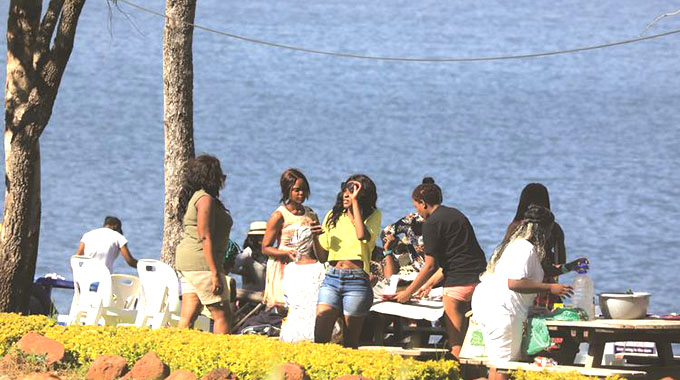Business Reporters
THE re-start of the tourism sector and ongoing related infrastructure investments should yield more benefits for grassroots communities who are severely affected by the disruptive Covid-19 impact, the Zimbabwe Tourism Authority (ZTA) has said.
The Government recently gave the tourism sector the nod to resume all activities, including domestic and international travel, after five months of closure due to Covid-19 lockdown measures.
The move has excited the sector, which was on the brink of total collapse, with hopes for improved prospects and job salvation.
About 60 percent of Zimbabwe’s tourism is anchored on wildlife conservation (parks, conservancies) situated within rural areas of Zimbabwe and every year visitors pay hundreds of thousands of US dollars to watch or do trophy hunting.
Some of the popular and well patronised wildlife sanctuaries in Zimbabwe are Hwange, Victoria Falls and Zambezi, Gonarezhou, Matusadona, Matobo, Nyanga, Mana Pools, and Chizarira national parks.
“There have been infrastructural developments and tourism related amenities to serve the tourists visiting these areas.
“These developments have not only benefited the tourists, but our grassroots communities scattered around Zimbabwe,” ZTA acting chief executive, Mr Givemore Chidzidzi,said.
He said the Zimbabwe Tourism Authority was working with more than 40 community based tourism projects in both urban and rural communities throughout the country.
“The objective is to empower communities through tourism. These projects range from accommodation, cultural heritage, crafts and festivals run and organised by communities. These projects are improving the livelihoods and quality of life of our communities,” said Mr Chidzidzi .

Revellers enjoy themselves at Mazowe Dam Resort on Saturday as Zimbabwe joins the rest of the world in celebrating Tourism Month. — Picture: Tawanda Mudimu
“Opportunities for tourism growth are vast within our rural communities, thus local and international investors are encouraged to invest in these areas and continue to drive rural development.”
Economic experts are convinced that harnessing the power of tourism to drive rural development will contribute towards the achievement of the national vision of “becoming an upper middle-income income economy by 2030”.
For tourism and rural development to be sustainable, Mr Chidzidzi said it is imperative for locals to participate in tourism, hence the current thrust to promote domestic tourism as envisaged in the National Tourism Recovery and Growth Strategy.
“As Zimbabwe slowly opens up, the sector will be resuming operations under the World Health Organization (WHO) and Ministry of Health and Child Care guidelines,” he said.
“This is a relief to the entire tourism sector, particularly rural communities in tourism who have limited capacity to cope with the impact of the crisis.”
Mr Chidzidzi was speaking ahead of this year’s upcoming tourism day celebrations later this month.
The World Tourism Day set for 27 September every year was founded by the United Nations World Tourism Organisation (UNWTO) with an aim of fostering awareness among the international community, of the importance of tourism and its social, cultural, political and economic value.
The theme this year is, “Tourism and Rural Development”, which seeks to unpack the potential of tourism to create opportunities and jobs at the same time preserving natural and cultural heritage.
“The country’s tourism sector over the years has gone an extra mile by dedicating the whole month of September as the “tourism month”, a commitment of the tourism industry to make the sector thrive,” said Mr Chidzidzi.
“As we celebrate the tourism month under an unprecedented period where the sector has been severely affected by Covid-19, we reflect as the tourism board on how we have been working to empower rural communities especially the women and youth to benefit from tourism,” he said.
– HERALD


